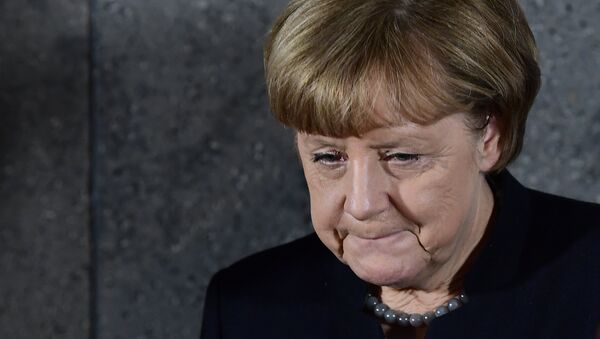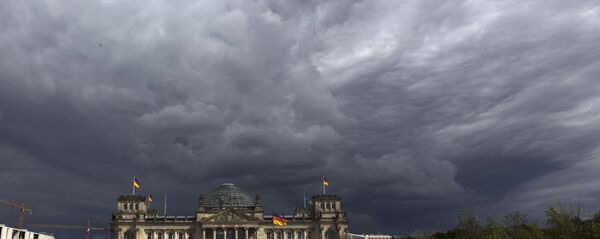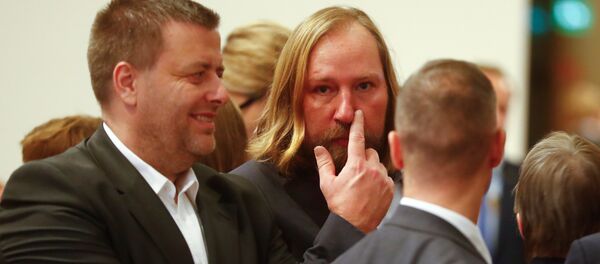The collapse of four weeks of coalition negotiations sends a disturbing message not only to Angela Merkel, but also to her European counterparts, indicating that the excessive involvement in global problems at the expense of national interests may lead to a political crisis, RIA Novosti political observer Vladimir Ardaev writes.
Now there are only two ways out of the stalemate: the formation of a minority government or repeated elections to the Bundestag. Both options are bad for Merkel, the observer highlighted, adding that in any event the president would have to propose the candidacy of the Chancellor to the parliament for approval in the first place.
"In the first case, she risks not collecting votes, which would put paid to her fourth term… In the second case, her party may lose even more votes than in the September elections, and even suffer defeat from the Social Democrats (SPD) who went into opposition. The next step would be a profound reshuffle of the entire cabinet," Ardaev stressed.
Following the failure to create the government coalition, Merkel signaled that she would prefer a new election to ruling with a minority.
"My point of view is that new elections would be the better path," she told ARD television as cited by Reuters.
Ardaev explained that it would be very difficult for Merkel to continue pursuing her policy while being the head of a minority government: She would have to coordinate all important decisions with the parliament where the CDU/CSU and the Greens don't have unequivocal support.
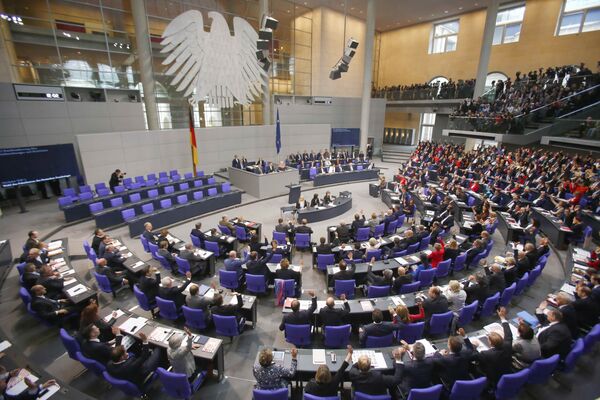
For his part, President Frank-Walter Steinmeier called upon the parties to try to form the government again. According to the president, Germany was facing the worst political crisis since the end of the Second World War.
Meanwhile, political analyst Dmitry Abzalov, president of the Center for Strategic Communications, suggested that the Free Democratic Party (FDP), which refused to take part in the negotiations on the ruling coalition, are seeking nothing less than gaining bargaining chips.
"The FDP is very interested in getting the position of the Minister of Finance, and eventually the CDU/CSU can agree to this," Abzalov suggested. "Another option, a return to talks on a large coalition with the Social Democrats, cannot be excluded either."
Alexander Gusev, a political scientist and director of the Institute for Strategic Planning and Forecasting, echoed Abzalov, "Probably, the leadership of the CDU and CSU has an opportunity to once again try to rely on the SDP, having pledged to provide them with serious preferences, first of all, ministers' positions in the new government," he told Radio Sputnik.
Director General of the Russian International Affairs Council (RIAC) Andrey Kortunov believes that one shouldn't overestimate the ongoing political crisis. According to the scholar, the Germans are convinced that the current situation won't throw into question the effectiveness of the state machine.
However, "it is a wake-up call, signaling that the [German] political system has started to 'run harshly'," he remarked, adding that the recent developments have dealt a heavy blow to Merkel.
Kortunov emphasized that it's time for the German Chancellor and her European counterparts to focus on domestic affairs. Germany needs to clearly articulate its national policy, while remaining the leader of the European Union, he pointed out.
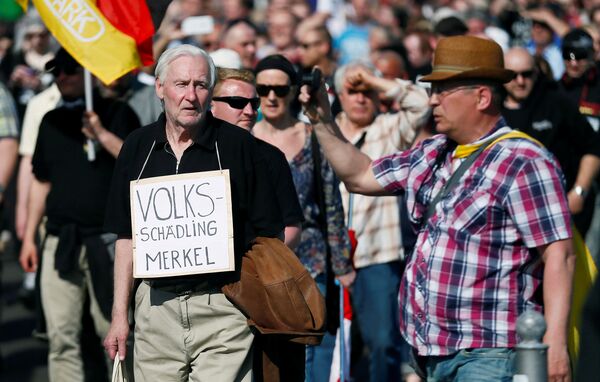
According to Abzalov, not only Merkel, but also the Bundestag and Germany as the flagship of the EU may suffer losses due to the government crisis: The scholar surmised that the weakening of Germany would play into the hands of France, "especially given the ambitions of President Emmanuel Macron, who can try to regain the same dominant positions that Jacques Chirac previously had in Europe."
Furthermore, this potential shift may affect the implementation of many of Merkel's European initiatives, most notably, the migration reform, he stressed.
Abzalov insisted that if the German Chancellor wants to stay at the helm she needs to reconsider her political course, since Europe and the whole world have undergone significant changes.
Meanwhile, European newspapers have raised alarm over the potential impact of the German political crisis on the EU bloc as a whole. While some media outlets suggested that "the Merkel system has failed," others expressed fears over the potential strengthening of the Eurosceptic, anti-immigrant AfD.

